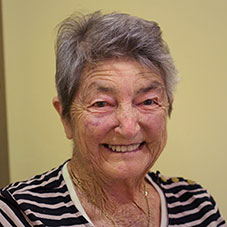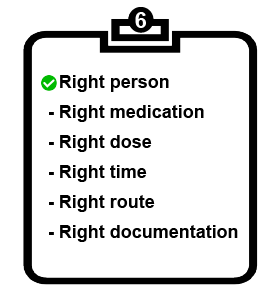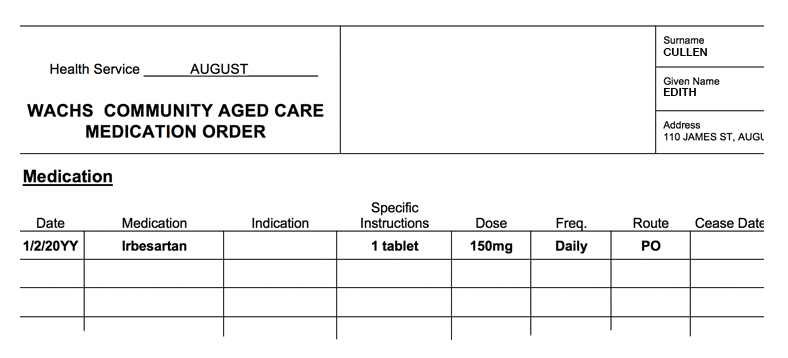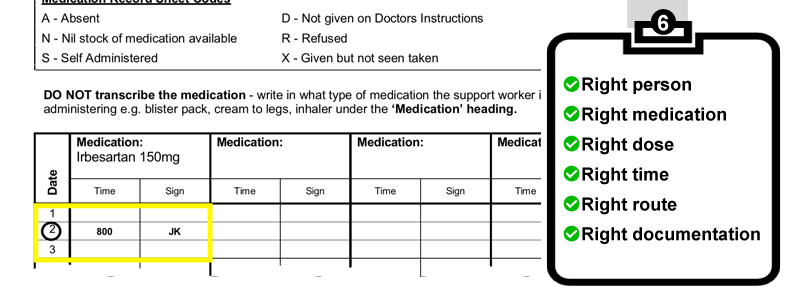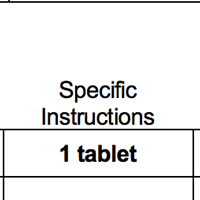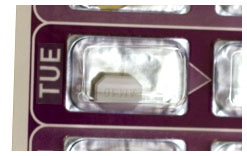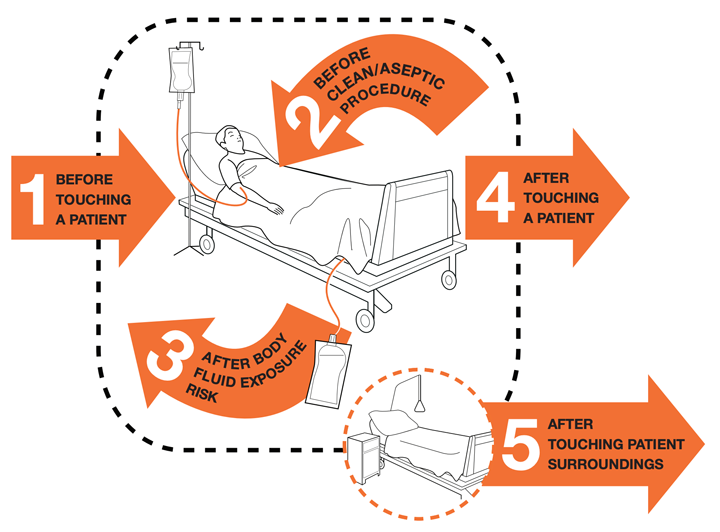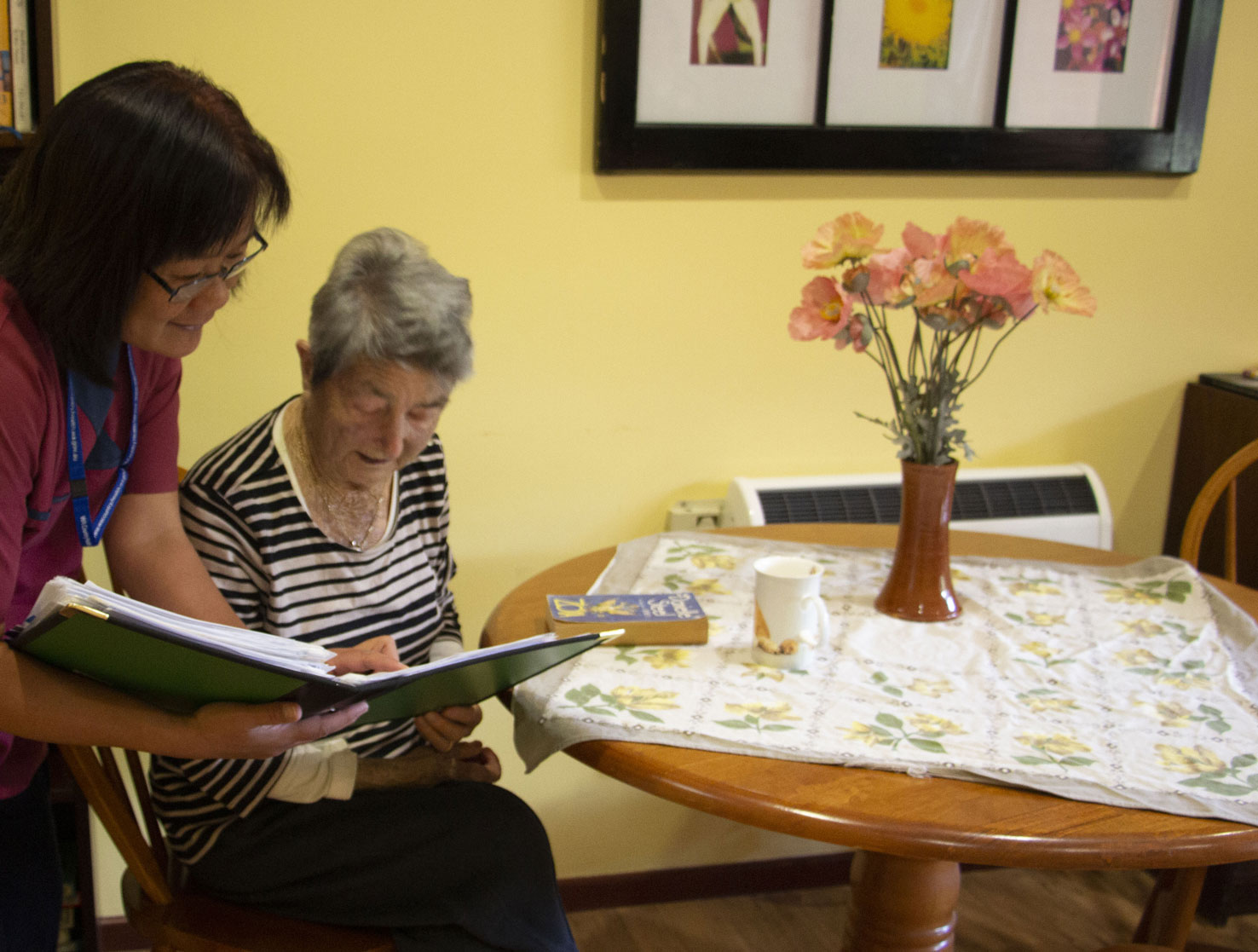Acknowledgements and disclaimer
Welcome
Welcome to the WA Country Health Service online Medication Competency Assessment Module. This module is supported by funding from WA Primary Health Alliance through the Australian Government’s PHN Program.
This learning resource has been produced to facilitate the professional development of WACHS and non-government Unregulated Health Care Workers in the provision of the skills and knowledge associated with the supervision and assistance with medication administration. This module addresses the provision of physical assistance with medication or supporting clients with self-medication in response to an assessed need identified by a registered nurse.
Information contained within this product is in accordance with the current acceptable National Quality and Health Service Standards and the Aged Care Accreditation Standards.
Questions about this resource can be directed to the WACHS learning and Development team by email to WACHStraining@health.wa.gov.au. Feedback can be provided via the Evaluation link at the end of this product. Target Group This program is appropriate for people who assist with medication administration in a variety of health care settings and must be applied strictly in accordance with legislation, regulations, government policy and industry guidelines.
Learning outcomes
What will I be learning and why?
After completing this elearning you will be able to:
- Prepare to assist with medication
- Identify and prepare the client for assistance with administration of medication
- Support clients with the administration of medication
- Administer medications within legal parameters
- Monitor the client response to administered medication
- Handle medication contingencies
- Complete medication distribution and documentation
- Identify situations that are a potential risk to the safe administration of medications
- Recognise and respond to the deteriorating patient

Jamie
This is Jamie.
Jamie is a carer at Sunshine Village. She will be helping you through this module.

Conditions
I can only assist people with medication if:
A registered nurse (RN) has authorised me to do so AND
- The medication is in an administration aid (e.g. blister pack) OR
- The medication has been pre-packed by a pharmacist (e.g. eye drops or creams)
For more information refer to Personal Limitations and Scope in page 11 of the Medication Handbook for Unregulated Health Care Workers.
Are you ready to start? Then let's go and meet Edie.
Edie
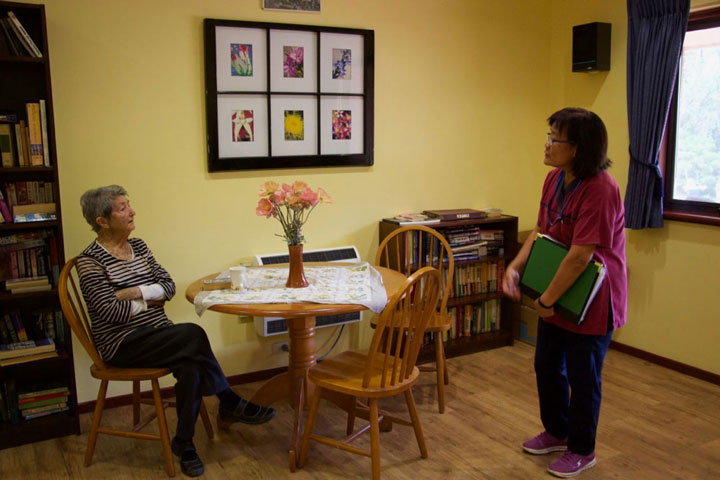
Jamie goes to visit Edie to assist with her medication.
Note that this story takes place in a community setting.
Check for any signs of deterioration
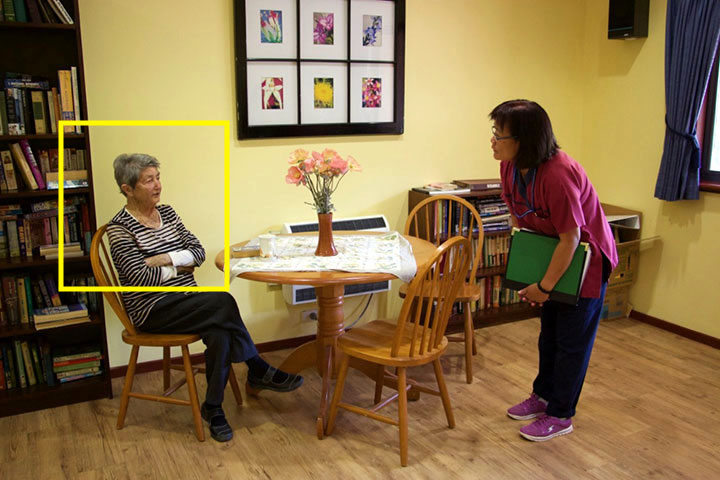
Jamie keeps an eye out for any changes to Edie's appearance or behaviour.
Click Edie to check for any signs of deterioration and to see how she responds.
Right person
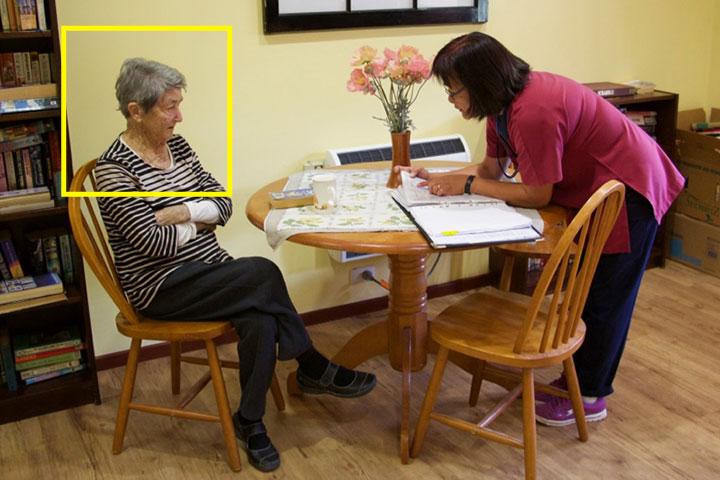
Jamie checks Edie’s photo and name on her identity form.
Click Edie to see how she responds.
Jamie gains consent
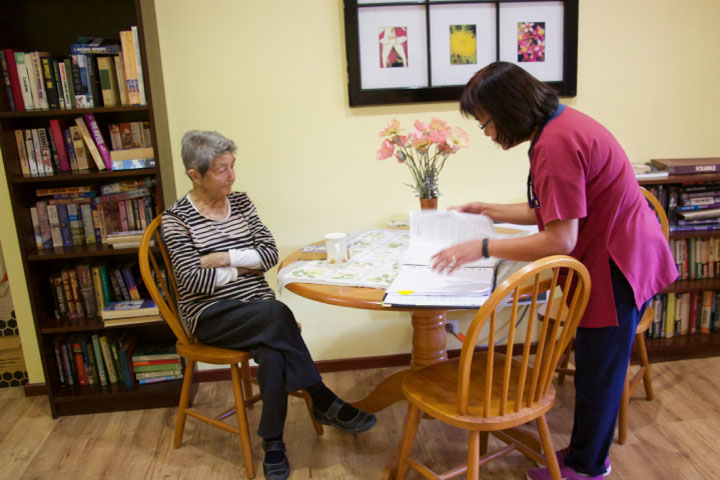
Jamie gains consent from Edie to assist her with her medication.
Medication order
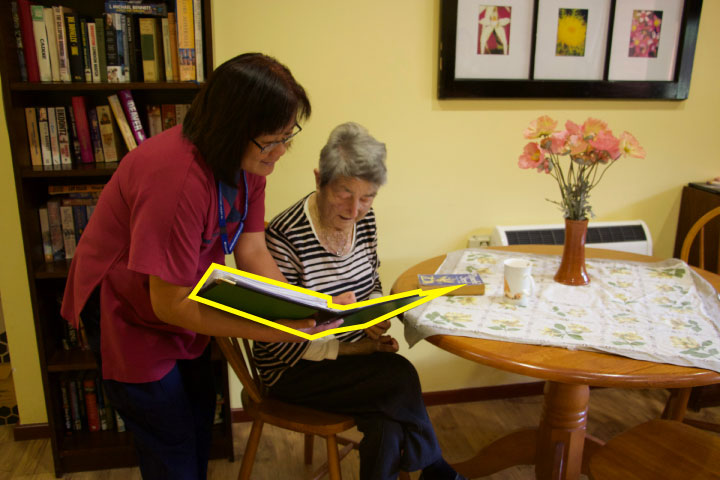
Jamie first checks Edie's medication order.
A medication order is a legal document (signed by a doctor) that specifies the medication, dose and route required for a resident or client.
Click the medication order Jamie is holding.
Medication orders
Check the blister pack
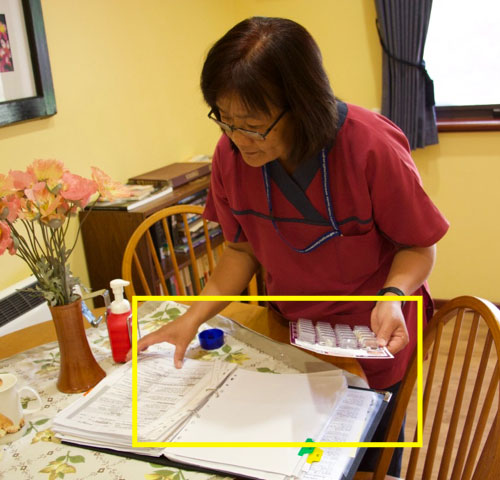
Next, Jamie checks Edie’s blister pack for any damage and counts the number of tablets inside.
Click the blister pack and Edith’s folder to have a look.
Are the number of tablets in the blister pack the same as the dose stated on Edie's order?
Oral medication types
Edie's blister pack contains tablets. Tablets are one form of oral medication. Click on the other types of oral medications in the picture to learn more about them.
Hand hygiene
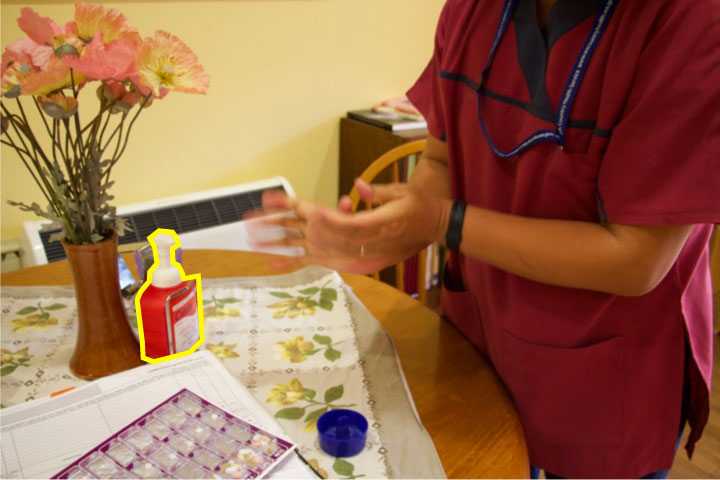
Jamie performs hand hygiene.
Remember, Jamie must always perform hand hygiene before and after touching a client or their surroundings.
Review the 5 moments of hand hygiene.
Click the dispenser to review how to use alcohol rub.
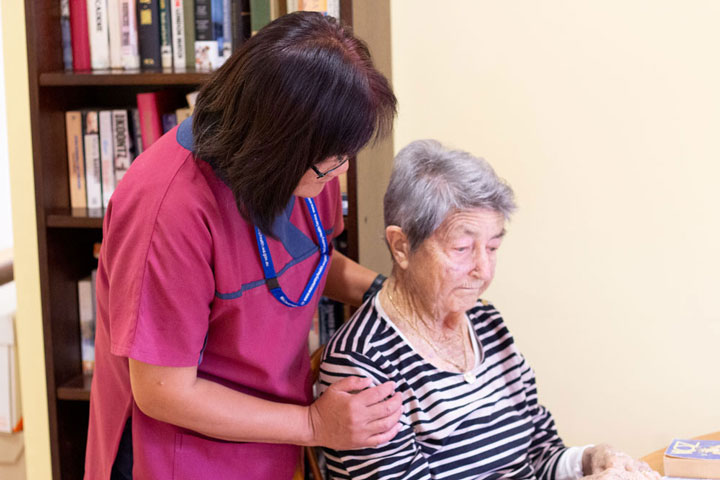
The 6 steps to assist with oral medication
Jamie now follows the 6 steps to assist Edie with her medication.
Step 1
Assist the resident (or client) into a sitting position.
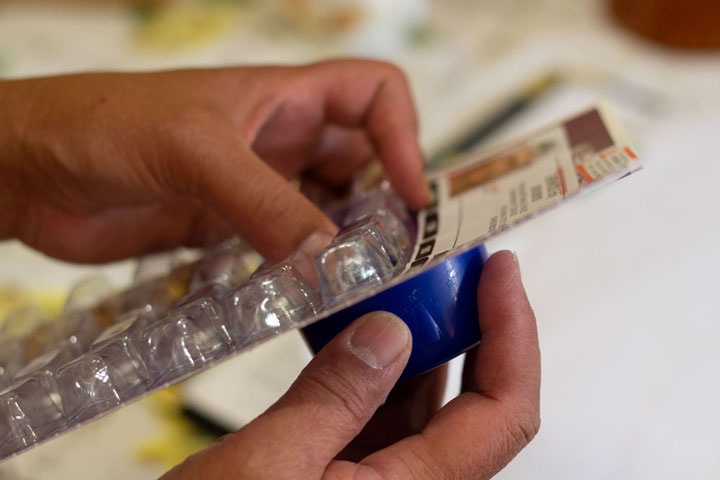
The 6 steps to assist with oral medication
Step 2
Remove the tablets from the blister pack by using your thumb or a Pil-Bob to push down on the blister corresponding to the appropriate day and time of day.
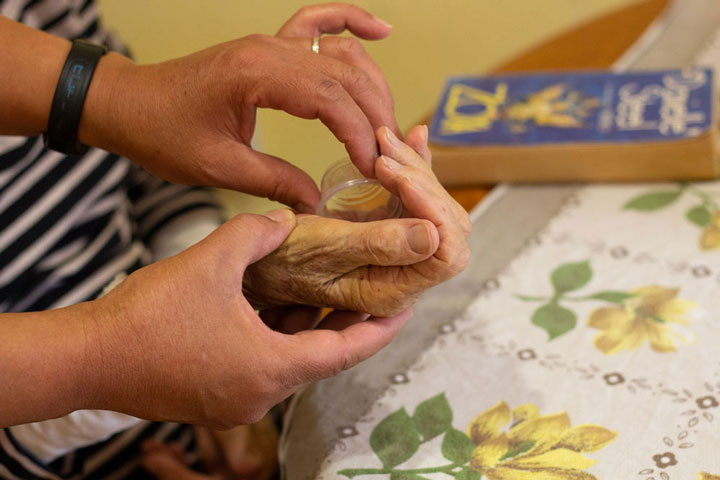
The 6 steps to assist with oral medication
Step 3
Give the resident the medication in their hand or medication cup.
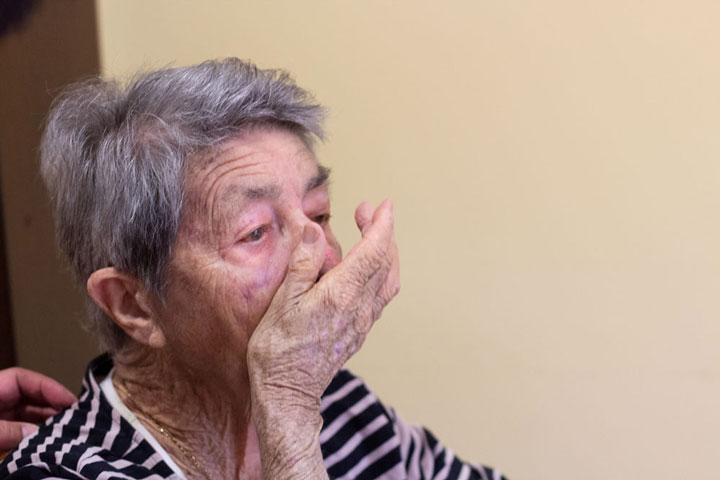
The 6 steps to assist with oral medication
Step 4
Ensure the resident puts the medication in their mouth. If they are unable to hold the tablets or cup, place the tablets in their mouth using a spoon.
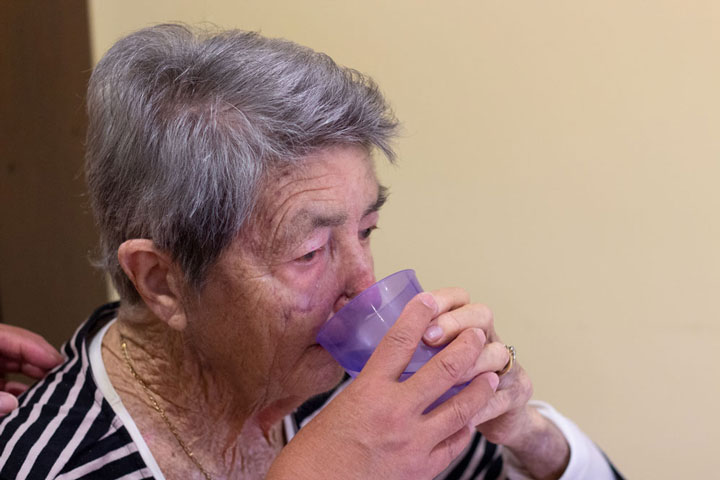
The 6 steps to assist with oral medication
Step 5
Offer the resident a drink and check that they are comfortable.
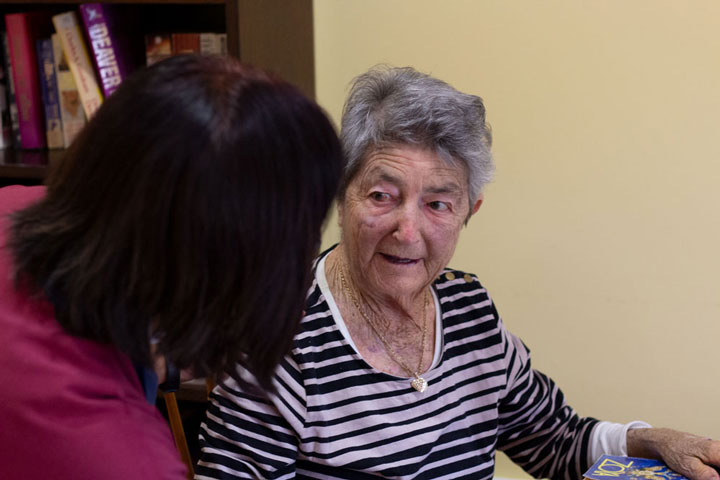
The 6 steps to assist with oral medication
Step 6
Ask the resident if they had any trouble swallowing. If so you must report this to the RN.
Hand hygiene
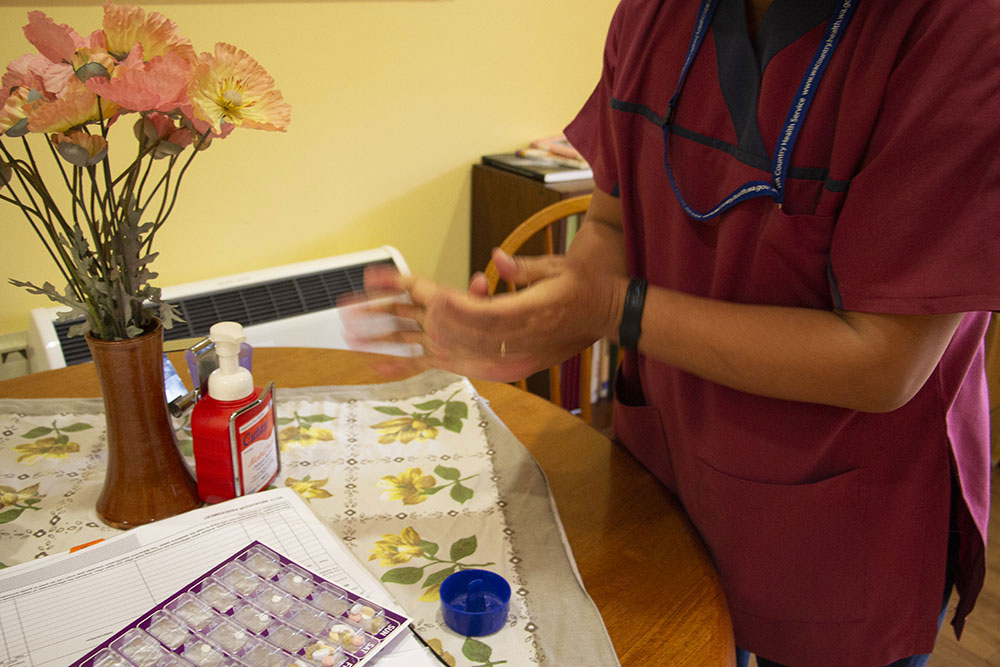
Jamie performs hand hygiene again using alcohol rub.
Hand hygiene is a requirement of the infection control guideline that Jamie must follow.
Signing sheet
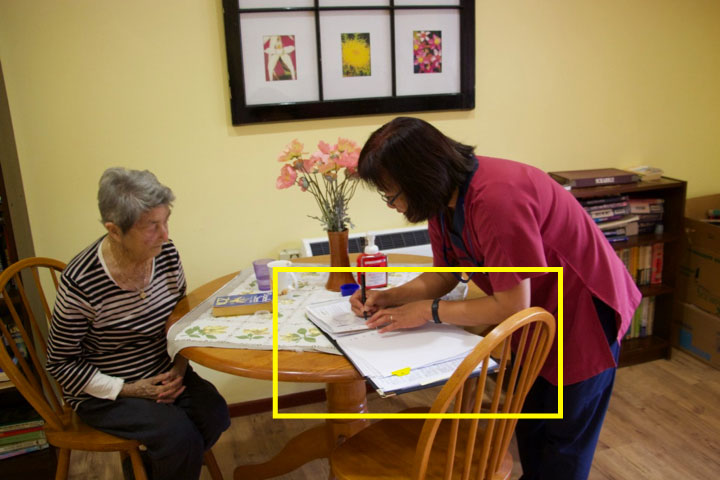
Jamie signs Edie’s signing sheet.
Click on the folder to see where Jamie needs to document Edie's medication.
Irbesartan
Edie's medication is Irbesartan.
Is Irbesartan the generic name or the brand name for this medication?
Returning the blister pack

Jamie ensures the blister pack is returned in its secure location.
She performs hand hygiene again before leaving the room.
You are now ready to start your assessment for this case study.
Question 1
Edie's medication order shows that she has been prescribed an anti-hypertensive medication called Irbesartan, which is sold under the brand name Karvea.
What is the best name to use for Edie's medication?
Question 2
Edie returns from her GP with a new script for antibiotic cream and asks you for help to apply it.
Does your role as a health care worker allow you to assist Edie with her new medication?
Question 3
During Edie's case study Jamie performed hand hygiene on several occasions.
What is the best cleansing agent to use when your hands ARE visibly soiled?
Question 4
All health workers must be familiar with the legislation, regulations, codes of practice and policies that are in place at their workplace.
Which document outlines the 5 moments of hand hygiene that health workers must follow?
Question 5
Take another look at Edie's medication order. What does the term 'PO' mean?
'PO' means that the medication needs to be:
Congratulations
Congratulations
You have successfuly completed Medication Assistance (For the Unregulated Health Care Worker) - Oral Medication 1 (MAURa EL2).
You can now close this tab and start Oral medication 2 when you are ready.
You can now start the next module: Oral medication 2 when you are ready.
You might also like to:
- Explore the resources and further reading;
- Complete the short evaluation of the module - your feedback is appreciated; or
- Launch and complete the reflective practice activity tool - your feedback is appreciated; or
- Restart this module
 Tip sheet on oral tablets and capsules
Tip sheet on oral tablets and capsules
